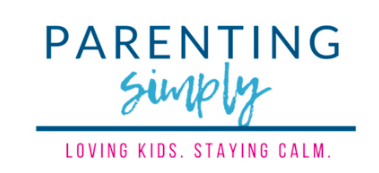
The Foundation of Attachment: Examining Well-Being Parents
Being a parent is a journey full of unwavering love, frustrating times, and the constant goal of raising contented, well-adjusted kids. Although there isn't a single "right" approach to raising a child, positive parenting theories provide a framework based on developing a close, caring bond with your child. This strategy, which is based on research-proven methods, creates a caring atmosphere that supports your child's emotional health and positions them for future success.
Recognizing Effective Parenting: Going Beyond Awards and Penalties
Treating excellent behavior with incentives and punishing bad behavior with penalties is not the only aspect of positive parenting. It's an all-encompassing strategy that highlights:
- Definition and Philosophy: Emotional connection is a top priority in positive parenting. It entails paying attention to your child's needs, supporting and comforting them through trying times, and acknowledging and applauding their accomplishments. Positive parenting nurtures a child's emotional intelligence, resilience, and self-esteem. It also promotes mutual respect, empathy, and open communication between parents and children. Research conducted by developmental psychologist Mary Ainsworth has demonstrated that a child's social and emotional development are significantly impacted by the stable bonds they build during their early years.
- Positive Discipline: Rather than just penalizing inappropriate behavior, positive discipline aims to teach appropriate behavior. This entails laying out precise guidelines, providing support, and, if required, enforcing natural consequences. Harsh punishment was less successful than positive discipline methods, including time-outs and positive reinforcement, in decreasing problematic behaviors, according to a 2013 meta-analysis that was published in the Journal of Child Psychology and Psychiatry.
- Effective Communication: The foundation of positive parenting is open and honest communication. It entails paying attention to what your child is saying, acknowledging their feelings, and giving explanations that are suitable for their age. Positive communication practices, according to research in the Journal of Personality and Social Psychology, may help parents help their kids better regulate their emotions.
- Establishing Boundaries and Limits: Being a positive parent does not mean being unstructured. It entails laying out expectations and guidelines in a clear, consistent manner. This gives kids a feeling of security and teaches them self-control. According to a University of Michigan study that was published in Developmental Psychology, kids who have consistent, clear limits typically perform better in school and have stronger social skills.

Implementing Positive Parenting: Workable Techniques for Daily Life
Using positive parenting approaches doesn't mean throwing out everything you've done so far. The following actions are doable and can help you integrate these tactics into your everyday routine.
- Set priorities Individualized Time: Set aside a specific, distraction-free period of time each day to spend quality time with your child. This could involve playing a game or reading a story aloud.
- Engage in Active Listening: Pay attention to what your child is saying while they are expressing themselves without interjecting. Respect their feelings, even if you don't always agree with them.
- Provide Limits and Choices: Give your kids age-appropriate options so they can feel in charge while staying within reasonable bounds. Give them the choice to choose between two pre-selected outfits, for instance.
- Put Positive Reinforcement First: Acknowledge your child's good behavior! Praise and acknowledge good behavior, emphasizing the particular deeds you find admirable. This fosters the continuation of desired behaviors by reinforcing them.
- Make Use of Natural Consequences: Let your kids face the unavoidable repercussions of their conduct whenever you can. For example, kids can feel a little chilly if they don't have their jacket on on a cool day. This presents a wonderful educational opportunity.
- Make Good Use of Time-Outs: Time-outs are a useful tool for dealing with difficult behaviors. Tell your child what behavior called for the time-out when they are quiet.
- Set a Good Example: Kids pick up knowledge from the adults in their environment. Make an effort to exhibit the behaviors you want your child to exhibit. In your personal encounters, try to be patient, to communicate positively, and to control your emotions.
The Path of Positive Parenting: Advantages and Difficulties
There are several advantages to positive parenting for both parents and kids. Research indicates that kids brought up with positive parenting techniques typically grow up to be:
- Stronger emotionally
- Have better self-control over their emotions
- Have stronger social skills
- Perform better academically
- Have patience. There will be setbacks, and change takes time. If you don't notice results right away, don't give up.
- Seek Assistance: Being a parent is a tough job. Never be afraid to ask for help from your partner, family, friends, or mental health specialists.
- Self-care is essential. An empty cup cannot be used to pour. Make time for things that will help you stay well, and make managing stress a priority. This may include going to the gym, taking in the scenery, or engaging in enjoyable hobbies.
- Celebrate Your Wins: No matter how tiny your progress may be, acknowledge it. Parents can benefit from positive reinforcement as well!
In addition to lowering stress and tension within the family, positive parenting fosters a more loving and pleasant relationship between parents and children.
Recall that there is no such thing as an ideal parent. For both you and your child, positive parenting is a lifelong learning and development process. You can raise contented, well-adjusted adults by using these research-backed strategies and placing a high value on your relationship with your child.
Additional things to think about:
- Positive Parenting and Various Age Groups: You must modify positive parenting methods according to your child's developmental stage. The tactics you employ with a toddler, for example, will be different from those you employ with an adolescent. It can be really beneficial to look into age-appropriate methods.
- Handling Challenging Behaviors: Positive parenting embraces challenges. It gives you the tools you need to deal with difficult habits in a positive way. Books and parenting courses are two examples of resources that might provide helpful advice in handling these circumstances.
- Cultural Considerations: Different cultures have different expectations and parenting philosophies. Recognize the impact of your cultural heritage on your parenting style.
In conclusion, while positive parenting is a powerful tool that can help you forge a solid, supportive relationship with your child, it is not a panacea. You may contribute to your child's happiness and well-being and prepare them for success in life by adopting positive reinforcement, establishing clear limits, and nurturing emotional connection. Recall that positive parenting is an ongoing journey with many successes and struggles. Accept that learning is a process, acknowledge and celebrate your accomplishments, and above all, value the time you get to spend with your child.

Comments
Post a Comment